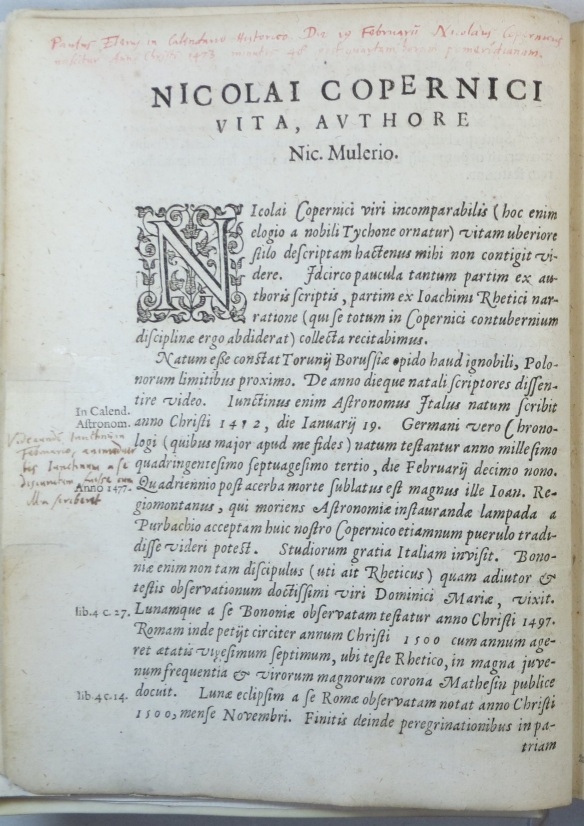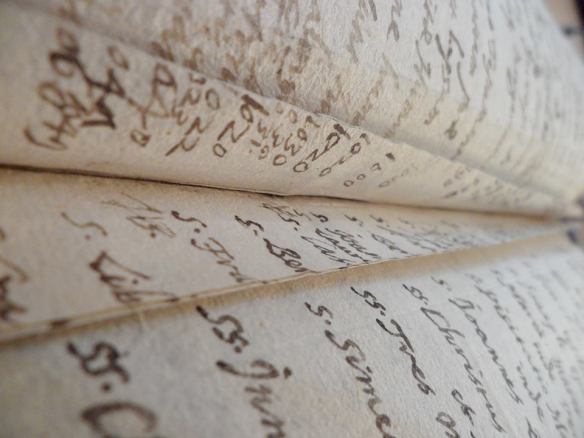Even if I would really want to avoid him – because he is simply too big for me, because everything had been already written on him, name all possible reservations you want – he comes out from nearly every corner I visit. Starting from the writings on calendar reform, to the mid-sixteenth-century obscure astrological manuscripts I studied recently, to even more obscure chronological manuscripts I have studied for the past year and am going to study for a while longer, to the marginalia of a bunch of Central European scholars who are important for me due to their activities at the intersection of astronomy and history – there is always a 99% chance that I will end up with him. Everything – at least in my scholarly world – seems to revolve around him. Well, I should have seen this coming.
I guess you already know who that is. And since he was born on February 19, 1473, as his reader and a citizen of Toruń since 2013, I can’t say nothing else but: Happy birthday, old chap, we’re gonna spend some time together.
As a birthday card, for obvious reasons of greater interest to modern readers than to Copernicus himself, I would like to present a page from Astronomia instaurata, the third, 1617 edition of De revolutionibus, prepared by Nicholaus Müller’s and published in Amsterdam. Here we come back to Joannes Broscius and his annotations. Broscius used all three early modern editions, the Nuremberg 1543 edition, which belonged actually to the university, the Basel 1566 one and the Astronomia instaurata, and all of them bring some interesting materials on the reception of Copernican ideas in Kraków (as well as the way Broscius incorporated Copernicus’s claims into his own research). If you have access to the famous Owen Gingerich’s Census (which nowadays seems to be more rare than Copernicus), you can check it on your own and/or have a look at the digitized Nuremberg edition at the Jagiellonian Digital Library (and when you get bored with Broscius’s notes, check out the Jag. Lib. MS 10000 – the autograph of De revolutionibus!). As to the birthday card: Broscius, as a vigilant reader and one of the first biographers of Copernicus simply decided to join the discussion about Copernicus’s date of birth and the annotation’s he left on the first page of Müller’s Life of Copernicus testify that.

Kraków, Jagiellonian Library, shelfmark Mag. St. Dr. 311204-311205 II
P.S. In one of my tweets I sent earlier this month I included a photo of a title page of Rheticus’s Narratio prima.
This copy belongs to the Copernicus House Museum in Torun and from the annotations it is clear that this reader of Rheticus confused his date of death. In the light of the discussion’s summarized by Müller and notes left in Rheticus, it seems that Copernicus and early Copernicans were out of luck as far as the daiting of their lives was concerned…
P.P.S. Those of you who are still hoping to read part 2 of the new cycle on the manuscript of Jan Latosz I inaugurated in January, rest assured it will appear shortly. I am still buried in the edition and creating commentary and as soon as I dig myself out, I will be able to tell something more (and general) about the MS. As for now, I can say it is even more interesting now than it was when I read it for the first time and it has some Copernican elements too!


